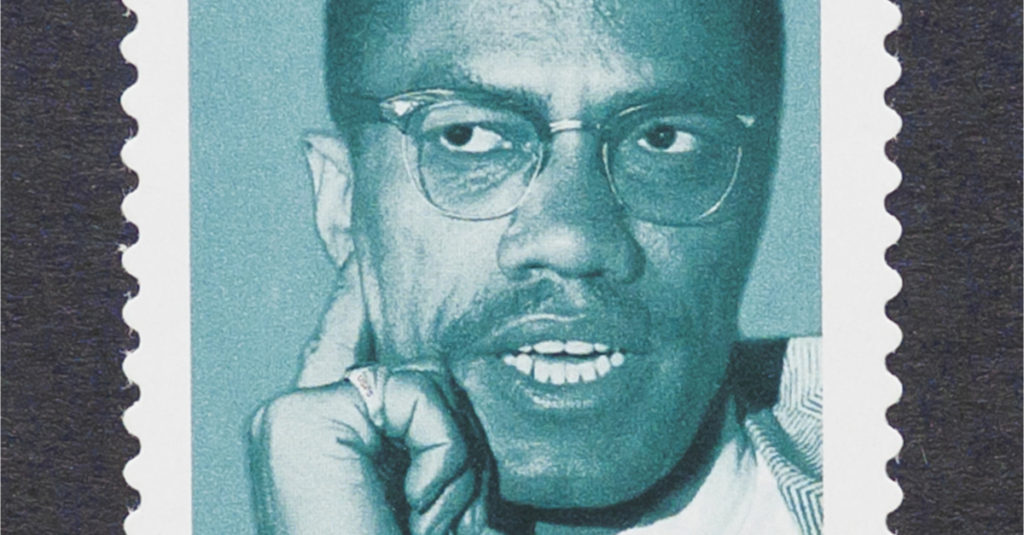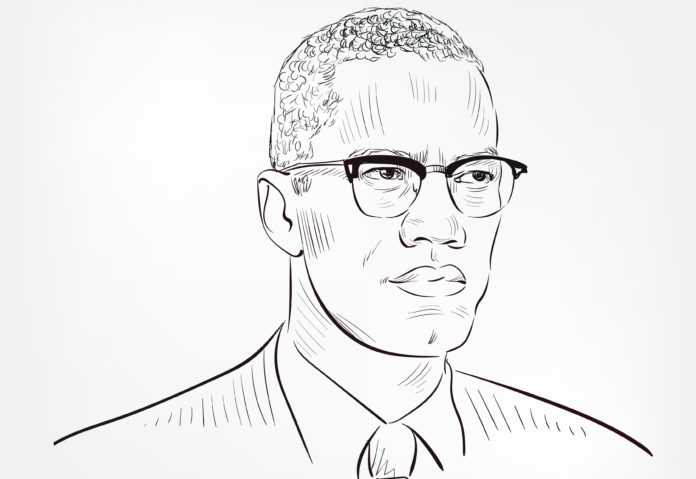On the anniversary of the assassination of Malcolm X, writer and author Suleiman Ahmed examines three aspects of Malcolm’s personality – his religion, race and politics – and draws lessons that we can learn today.
Malcolm X is admired and respected across the board, but not everyone admires everything the civil rights icon stood for.
Many Black non-Muslims, for example, love him for his pro-Black activism and fight to end anti-Black racism, but hold unflattering views of his religion. To many of them, Islam is a negative and alien element to Africans, even though it was Islam that transformed Malcolm Little into Malcolm X.
In Africa, apart from some ancient African empires such as Carthage and Egypt, very powerful and influential empires such as Ghana, Mali, and Songhai were founded by Muslim dynasties. Many Black, non-Muslims are very proud of these empires and their leaders, most notably Mansa Musa, but just as in the case of Malcolm X, they tend to erase their Islam when speaking of them.
On the other hand, there is a group of non-Black Muslims who seem to love Malcolm X’s Islam but have an unexplainable disdain for his Blackness. I can understand racism from some quarters, but never from a group whose religion unequivocally forbids it.
This group of people speak of Malcolm X as if his ethnic origin is of little importance. To many of them his race or ethnic background is an afterthought. Needless to say, I can’t help but notice how often they try to undermine or erase his Blackness – something he was very proud of. Something at the centre of his life.
Malcolm X’s identity as Black and as a Muslim man were central to who he was. We cannot claim to love one side of him and discard the other. To accept one over the other is dishonest at best and hypocritical at worse.
Subscribe to our newsletter and stay updated on the latest news and updates from around the Muslim world!
Malcolm’s politics
Aside from the ethnic origin and religion of this great man, there’s a third side, which everyone pretends not to notice, even though it is standing right in front of us – his politics.
Two years ago, I read an article where the author bemoaned Labour’s indifference towards their Muslim voters. The writer made some good points vis-a-vis Muslims’ unflinching and unquestionable support for the Labour Party, and how they got very little in return for their troubles. He then went on to suggest that Muslims should abandon the Labour Party entirely, and in its stead create activist groups to “fight the system from the outside.”
As courageous and revolutionary as that may sound, it didn’t sound like a sustainable solution to me.
Although an activist in every sense of the word, Malcolm X didn’t just hold town hall meetings to complain of how bad things were. He organised and got involved in politics, which he played quite skilfully. He might have been a reluctant American, as many British Muslims are reluctant Brits, yet he never shied away from the social issues and politics of his time.

He founded the Organization of Afro-American Unity to fight for the human rights of African Americans and promote cooperation among Africans and people of African descent in the Americas. His politics took him to Nigeria, Ghana, Egypt, Guinea, Zambia, and several other countries, where he met presidents and princes to solicit their support in creating a united front to end racism in America.
The Muslims in Britain need to be heard. But holding protests to register our displeasure or being activists “on the outside” to “speak truth to power” would barely scratch the surface.
Power is needed to be truly effective in implementing change in society. And to get power one must play the politics of getting power — there’s no other way around this.
Politics is not a dirty word. Neither is Power. British Muslims need to be more ambitious and aspire to become more powerful within the British political system. They need a political body, like Malcolm X’s Organization of Afro-American Unity, whose main interest would be that of the welfare of British Muslims.
One that may fund and actively campaign for politicians, irrespective of their party, religion, or ethnic background, as long as they are willing to support and protect the welfare and interests of the Muslim communities they represent.
As Malcolm X brilliantly put it: “Nobody can give you freedom. Nobody can give you equality or justice or anything. If you’re a man, you take it”. Just as we admire Malcolm X’s courage and exemplary lifestyle as a Black Muslim activist, we also need to pay close attention to his politics and draw lessons from it.





















